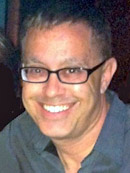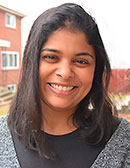
THE BRIDGE TO COLLEGE
A Letter to Students about Parents

Dear know-it-all teenagers,
What the “old people” want you to know is this: we are not your enemy. Mommy and Daddy really love you, to a depth that you will not understand until you raise your own children. However, we are sick and tired of being your parents. We’ve been waking you up in the morning, keeping you on time, feeding you, clothing you, cleaning your messes, transporting you everywhere, protecting you, teaching you, and paying for everything your lives.
We want our lives back. It starts by your understanding our position and respecting our efforts. You already know that “nobody is perfect,” but you don’t know how hard parenting is. Quite literally, it is impossible to be a perfect parent.
To be a perfect parent, one must know everything about child development and human growth from the moment of birth (and before) through age 18 (when we are no longer legally responsible for you). Nobody knows all that, but assuming that one could be omniscient, a problem arises when we send you to day care and school and group activities. We don’t get to see you in those places, so we don’t get to know how you are influenced by those people and environments. However, if somehow we could be all-knowing and all-seeing, and if we could also be perfect communicators, a problem would still remain.
You are immature. As unfinished biological beings, you are not perfect receptors of our admittedly imperfect lessons.
Nevertheless, it is our job to parent you as well as we can, and if you have turned out OK, we deserve some credit. Whether it’s your nature (our genes) or nurturing (our parenting), we have been the most significant influences on your growth.
But we don’t care about getting credit. We just want to stop the insanity. Parenting was fun for a while, but now it’s just endless work. We don’t want to chase you. We want you to chase us. If you seek us out instead of running away, we don’t feel that we have to hunt you down just to be sure you’re safe and sound. The truth is this: what we want is for you to grow up so that we can just talk to you like we are equals.
Here is an important lesson we need you to learn immediately. There will be times when things go wrong. Unfortunately, you have been convinced that it is your job to fix your problems. That’s not exactly correct. Although you are responsible for making sure that your problems get fixed, it is not necessary for you to be the fixer. When things start to slip, you are undoubtedly part of the cause, so why should the person causing the problem be the only person who can fix the problem?
A significant difference between adults and children is that adults have learned to ask for help. You should, too. This is your first try at life, and you don’t have much experience yet. Our experience can help you, and it’s free. Take it.
Because you have been growing up, we have had to treat you like children, which unfortunately means that we have made you feel inferior. Sorry about that; it’s the job. Parents are more powerful than children. Teachers are more authoritative than students. Adults have more resources than youths. Yet it is time for us to stop treating you as subordinates, but to do this, we need your help. Stop fighting us.
You are right: we don’t understand you very well. We didn’t grow up with the Internet and mobile phones. But we’re trying to help, and we want you to take control of your lives. As parents, around the time you get into 10th grade, we need to give you more room to try things and occasionally make mistakes. It is better to allow you to fall while we’re here to catch you or give advice about catching yourselves. When you leave home, we won’t be around to help.
More than anything, what we want is your success. Please remember that we are not your enemy. We are your resource and support group. Let’s work together.
Robert A.G. Levine, president of Selective College Consulting Inc., can be reached at (813) 391-3760, email [email protected] or visit www.SelectiveCollegeConsulting.com
FAMILY MATTERS
Why Bad Language isn’t always a bad thing

After years in the bubble of elementary school where “stupid” is referred to in hushed tones as the “the s-word,” newly minted sixth-graders often come back from their first day at middle school horrified at the language they’ve just heard from the older kids. Not my daughter, however. “Nothing I haven’t heard before,” she shrugged.
My husband is pragmatic, reliable, fun, serves as our expert GPS and broken-stuff-fixer, is as much at home on a dance floor as a basketball court and makes an excellent Moscow Mule. But he is the possessor of an inveterate (and bilingual) potty mouth. The f-bombs fly cheerfully out of his mouth with abandon, serving as a convenient adjective, adverb or unnecessary filler word in just about any non-work/ non-elderly-family-member situation or around people with whom he feels comfortable. “Language!” I snap.
But is preventing a bad word from landing on innocent ears worthy of strenuous parental watchfulness, or is it just another form of overprotection, especially now that the ears in question belong to fourth and seventh graders? Lenore Skenazy and Jonathan Haidt, founders of the Let Grow Foundation, argue in an article entitled “The Fragile Generation” (reason.com) that we have removed so many physical, emotional and even verbal “dangers” from our children’s lives that we have left them without the means to cultivate the resiliency they need to survive. Swings, see-saws and monkey bars have been deemed too dangerous for playgrounds and removed, the ground now carpeted with soft rubber mulch. A guidance counselor friend tells me she constantly has to explain to outraged children that every hostile interaction is not an incidence of bullying; sometimes, it’s just someone being kind of mean to you and it happens once in a while, even to grownups. At the other end of the spectrum, the college campus has become a contentious battle zone where free speech is pitched against protecting students’ feelings.
The standards certainly have see-sawed to a more sanitized approach when it comes to what’s acceptable on screen. I watched “E.T. the Extra-Terrestrial” with my children a year or so ago and while they enjoyed the movie and adored E.T. (my younger one even dressed as E.T. for Halloween that year), they were pretty surprised by the language Eliot was allowed to use in a kid movie, and by scenes involving kids and alcohol. Now if the “clean” new media was an accurate reflection of how the world has changed around us, this may not be surprising. But if anything, it’s an inverse ratio.
Emma Byrne, British scientist and writer of “Swearing is Good for You,” writes in The Guardian that shielding children from “bad” language is actually a disservice. “Whether they use it often or rarely, they will need it as part of their emotional lexicon,” Byrne writes. “There are some feelings that ordinary words just can’t do justice to.” Byrne isn’t the only one to tackle the topic; writers Benjamin K Bergen (“What the F”) and Michael Adams (“In Praise of Profanity”) released books on both sides of the pond in 2016, arguing that swearing encourages camaraderie, fosters creativity, and allows for deeper expression, as long as it doesn’t degenerate into slurs. That might be true — one of the most delightful contributors to our book club discussions is my friend Jasdeep, whose witty insights are liberally laced with well-placed and thoughtfully inserted expletives. One study Bergen referenced even showed that participants who swore while doing so were able keep their hands in freezing water an average of 40 seconds longer than those who didn’t.
I can’t say I’m a 100 percent convinced, but then again, I’m the kind of person who still says, “oh dear.” While a well-placed curse while driving on Interstate 4 may work for me, gratuitous swearing will probably never be my thing. Still, rigidity in parenting has never done anyone favors. While I certainly wouldn’t advocate cooing expletives into a toddler’s ears at bedtime, after a certain age we have to accept that if something is out there in the world, children will become aware of its existence sooner or later, whether or not it has a direct bearing on their life. Demonizing the innocuous merely shifts attention from the truly complex matters of how we really treat each other — and for those lessons, daddy is probably the best teacher after all.
Anu Varma Panchal is a mother of two and owner of www.YourEditingSolutions.com